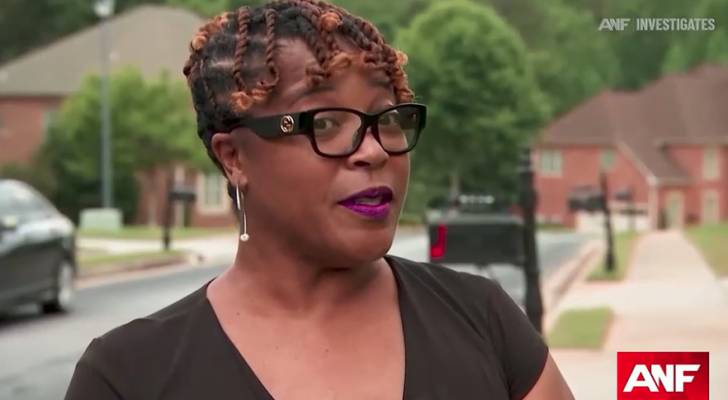
Homeowners in Channing Cove, a subdivision in Conyers, Georgia, are pushing back — demanding answers about where their mandatory HOA fees are going.
Michelle Bernard has lived in the neighborhood for nearly two decades, but says she still feels like she’s fighting to own her home. The business owner, wife and mother is one of five residents facing liens over unpaid fines, with charges ranging from $878 to $2,755.
Don’t miss
- I’m 49 years old and have nothing saved for retirement — what should I do? Don’t panic. Here are 5 of the easiest ways you can catch up (and fast)
- Gain potential quarterly income through this $1B private real estate fund — even if you’re not a millionaire. Here’s how to get started with as little as $10
- You’re probably already overpaying for this 1 ‘must-have’ expense — and thanks to Trump’s tariffs, your monthly bill could soar even higher. Here’s how 2 minutes can protect your wallet right now
“It doesn’t make any sense for any hardworking individual to go through these things that I have been going through and my neighbors also,” Bernard told Atlanta News First.
The HOA has reportedly required homeowners to pay thousands of dollars in fines and fees, yet hasn’t provided any proof of where that money is going, Bernard alleges. Frustrated and out of pocket, some homeowners are fighting to keep their homes safe and accounted for.
Small neighborhood, big fallout
Channing Cove is a small neighborhood — around 40 homes — but the financial pressure residents are feeling is anything but small.
Bernard told Atlanta News First that while homeowners continue to get hit with fees, the community itself doesn’t show signs of upkeep. The neighborhood has three common areas and retention ponds and for years, homeowners paid a $100 annual HOA fee — a rate Bernard called reasonable. Today, that fee has doubled to $200. But the dollar amount isn’t the issue.
“They have forced people to pay thousands and thousands of dollars and have never provided proof they owe it,” she explained.
Fines have reportedly been tied to things like pond maintenance or replacing garage doors without HOA permission. Homeowners allege they’ve repeatedly asked for receipts or bank statements showing where the money is going — but they’ve come up empty-handed.
Former HOA president Orton Reynolds claims he wasn’t aware of any financial issues within the community and denies any wrongdoing or financial mismanagement.
But the controversy isn’t going unnoticed. On May 7, 2024, Georgia state representatives Viola Davis (D-Stone Mountain), Sandra Scott (D-Rex), and Kim Schofield (D-Atlanta) announced plans to refile House Bill 1032 — the “Property Owner Rights and Accountability Act.” The bill would eliminate the ability for property associations to foreclose on homes over unpaid assessments, signaling growing political pressure to rein in unchecked HOA power.
“The bill aims to protect property owners from losing their homes over association fees. This move seeks to address concerns about the potential abuse of assessment fees, which have, at times, been used to unfairly target homeowners,” according to a press release from last year.
But for now, HOAs in Georgia still have the power to file liens — and if a lien exceeds $2,000, they can pursue foreclosure in court.
Read more: Want an extra $1,300,000 when you retire? Dave Ramsey says this 7-step plan ‘works every single time’ to kill debt, get rich in America — and that ‘anyone’ can do it
High fees, low trust
Buying into a community with a homeowners association (HOA) or condominium owners association (COA) usually comes with a string attached: recurring fees meant to cover neighborhood essentials like landscaping, snow removal, security, and upkeep of shared amenities.
In 2021, more than 2.3 million Georgians lived in communities governed by homeowners associations, collectively paying over $3.2 billion in fees, according to the Foundation for Community Association Research. But despite the massive sums involved, the state provides little oversight into how these associations operate. If a homeowner falls behind, HOAs and condo associations can place a lien on the property — and once that lien tops $2,000, foreclosure becomes a real possibility.
Still, Georgia homeowners aren’t entirely powerless. HOAs must provide financial transparency — including access to itemized receipts. Fines and fees must be “reasonable,” and late charges can’t exceed 10% of the original amount. Major changes to community rules or covenants require a member vote, and any amendments must be filed in court.
At Channing Cove, those rules have allegedly been bent — or ignored altogether. Bernard has filed a lawsuit against the HOA, accusing it of issuing fraudulent charges and quietly altering bylaws without holding proper meetings or votes since 2011.
She claims the HOA is now pressuring her to drop the case. Though her lien was for less than $3,000, Bernard says the association offered her a $40,000 settlement — a move she believes is less about fairness and more about making her lawsuit “go away.”
“I told them bring the lien,” she said. “I’m bringing a lawsuit.”
What to read next
- Millions of Americans now sit on a stunning $35 trillion in home equity — here’s 1 new way to invest in responsible US homeowners while targeting a 14%-17% IRR
- Robert Kiyosaki warns of a ‘Greater Depression’ coming to the US — with millions of Americans going poor. But he says these 2 ‘easy-money’ assets will bring in ‘great wealth’. How to get in now
- Here are 5 ‘must have’ items that Americans (almost) always overpay for — and very quickly regret. How many are hurting you?
This article provides information only and should not be construed as advice. It is provided without warranty of any kind.